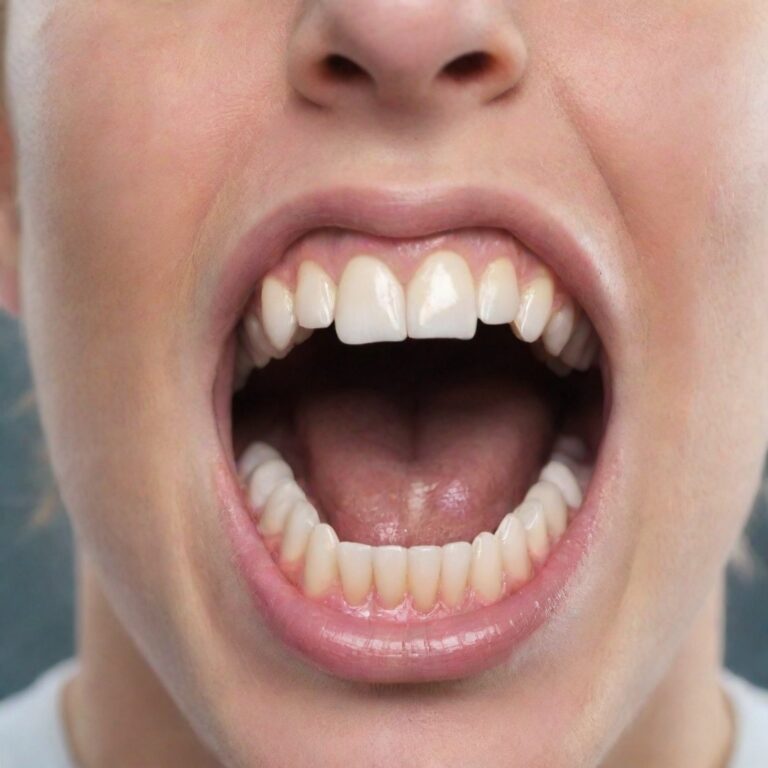Dental Emergency Services For Immediate Relief
Understanding Dental Emergency Services for Immediate Relief
When faced with a dental emergency, seeking immediate relief can significantly impact your well-being. Dental emergency services are designed to provide quick and effective care to alleviate pain and address urgent dental issues. Understanding these services and knowing when to seek help can make a crucial difference in your dental health.
What are Dental Emergency Services?
Dental emergency services encompass a range of treatments aimed at addressing acute pain or trauma to the teeth, gums, or mouth. These services include:
- Severe toothache relief
- Broken or lost tooth repair
- Abscess treatment
- Soft tissue injuries
- Lost dental fillings or crowns
- Orthodontic emergencies
By understanding what qualifies as a dental emergency, you can decide when it’s time to seek immediate care. Common situations that warrant a trip to an emergency dentist include intense pain, bleeding that won’t stop, or damage to a tooth that affects eating and speaking.
Signs You Need Immediate Dental Care
Recognizing the signs of a dental emergency is crucial. Here are some common indicators:
- Persistent Toothache: If your toothache lasts more than a day or becomes severe, it might indicate a serious issue that requires treatment.
- Swelling: Any swelling in your gums or face can suggest an infection that needs urgent care.
- Injuries from Trauma: If you are involved in an accident that results in chips or fractures to your teeth, seek help immediately.
- Bleeding Gums: Continuous bleeding from the gums, especially after brushing or flossing, should not be ignored.
Types of Emergency Services Available
Dental facilities typically offer various emergency services. If you’re experiencing a dental emergency, seek a clinic that provides the following:
- 24/7 Availability: Emergencies don’t adhere to a schedule. Look for a dental provider open during nights and weekends.
- Pain Management: Effective pain relief is crucial. Dentists will often prioritize alleviating your discomfort upon arrival.
- Diagnostic Services: Advanced imaging technology, like X-rays, helps identify underlying issues that may need immediate attention.
- Restorative Treatments: From root canals to fillings, emergency services can restore your tooth’s function in urgent situations.
- Preventive Education: After treatment, a good dental emergency provider will offer advice to avoid future emergencies.
The Importance of Quick Action
When it comes to dental emergencies, time is of the essence. The sooner you seek dental care, the better your chances are for a favorable outcome. Early intervention can prevent more invasive procedures, reduce pain, and enhance overall healing. Here’s what to do in case of a dental emergency:
- Stay Calm: Panicking can worsen the situation. Take deep breaths to soothe yourself.
- Assess the Situation: Determine the extent of the injury. Is the pain manageable, or is it worsening?
- Contact a Dentist: Call an emergency dental service right away. Describe your symptoms clearly.
- Follow Instructions: The dentist may provide specific guidance based on your condition before you arrive.
Preventing Dental Emergencies
While some dental emergencies are unavoidable, others can be prevented through proper care and habits. Consider these preventive strategies:
- Regular Dental Check-ups: Schedule routine appointments to catch issues early.
- Wear a Mouthguard: If you play contact sports, using a mouthguard can protect your teeth.
- Practice Good Oral Hygiene: Brush and floss daily to maintain healthy teeth and gums.
- Avoid Hard Foods: Stay away from excessively hard or sticky foods that may damage your teeth.
Dental emergency services exist to provide immediate relief from urgent dental issues. Being aware of what constitutes a dental emergency and understanding the services available can help you make informed decisions and ensure that you receive the care you need. Remember, taking quick action can lead to better outcomes and preserve your valuable smile.
Common Dental Emergencies and How to Recognize Them
Dental emergencies can arise unexpectedly, causing not just discomfort but also stress. Knowing how to identify these situations can help you seek immediate dental emergency services for quick relief.
Identifying Common Dental Emergencies
It’s essential to recognize the signs of dental emergencies to respond appropriately. Here are some common dental emergencies to be aware of:
- Toothache: A severe toothache can signal infection, decay, or other dental issues. If you are experiencing intense pain that doesn’t go away, it may be time to contact a dentist.
- Broken or Chipped Tooth: Accidents and sports injuries can cause your tooth to break or chip. This not only affects aesthetics but may also lead to infection if the inner part of the tooth, the pulp, is exposed.
- Knocked-Out Tooth: If you have a tooth knocked out, handle it gently by the crown, not the root. Rinse it in water, but avoid using soap or scrubbing it. Time is critical, so seek dental emergency services immediately to increase the chances of saving the tooth.
- Lost Filling or Crown: Losing a filling or a crown can lead to further decay or sensitivity. If this happens, keep the area clean and visit your dentist as soon as possible.
- Abscess: An abscess can appear as a swollen area on your gums filled with pus. This condition is often accompanied by pain and can lead to more severe issues if not treated promptly.
- Gum Bleeding: If your gums bleed excessively, especially after brushing or flossing, this could be a sign of gum disease or another serious condition. Contact your dentist for an evaluation.
- Loose Teeth: If a permanent tooth becomes loose, it might indicate an underlying issue such as gum disease or injury. Make an appointment immediately.
- Oral Injury: Any injury to the mouth, whether from a fall or an accident, can lead to complications. If you notice swelling, pain, or bleeding, you should seek professional help right away.
What to Do in a Dental Emergency
When faced with a dental emergency, it’s essential to remain calm. Here are steps to take:
- Assess the situation: Try to identify the problem accurately. Is it pain, bleeding, or an injury?
- Contact your dentist: Reach out for immediate dental emergency services. Many dental offices have emergency lines ready to assist you.
- Manage pain: Over-the-counter pain relievers like ibuprofen can help alleviate discomfort until you see your dentist.
- Control bleeding: If you’re experiencing bleeding, apply gentle pressure with a clean cloth or gauze to the area.
- Preserve any lost parts: If you have lost a tooth, keep it moist in a container of milk or saltwater. This can help keep the tooth alive until you can reach a dentist.
Preventing Dental Emergencies
While not all emergencies can be prevented, several steps can help minimize your risk:
- Regular Check-Ups: See your dentist at least every six months for routine exams and cleanings. Catching problems early can prevent emergencies.
- Practice Good Oral Hygiene: Brush your teeth twice daily and floss regularly to maintain healthy gums and teeth.
- Wear a Mouthguard: If you play sports, wear a protective mouthguard to reduce the risk of dental injuries.
- Avoid Hard Foods: Be cautious with hard candies or nuts that can damage your teeth.
- Stay Hydrated: Keeping your mouth moist helps prevent dry mouth, which can lead to various dental issues.
Recognizing the signs of a dental emergency earlier can significantly increase the chances of alleviating pain and saving your tooth. Taking prompt action by seeking dental emergency services ensures you receive the necessary treatment for relief. Always remember that your oral health is essential, so stay vigilant!
The Importance of Prompt Treatment in Dental Emergencies
Dental emergencies can strike unexpectedly, so knowing the importance of prompt treatment can mean the difference between saving a tooth and losing one. When you experience sudden dental pain, a knocked-out tooth, or any distressing oral health issue, acting fast is crucial. Understanding why immediate relief is essential empowers you to take the right steps during a dental crisis.
First, let’s discuss how time affects dental emergencies. Every moment you delay seeking treatment can worsen your situation. Here’s why prompt dental care matters:
- Prevention of Further Damage: Many dental issues, like abscesses and fractures, can escalate quickly. Early treatment stops further decay or damage and reduces the risk of complications.
- Minimizing Pain: Dental emergencies often come with significant pain. Quick access to care can alleviate discomfort, offering you relief and a chance to return to normal activities.
- Higher Chances of Saving a Tooth: If a tooth is knocked out, every minute counts. The possibility of re-implantation decreases significantly after the first hour. Seeking emergency services immediately increases the likelihood of a successful outcome.
- Improved Treatment Options: Addressing an issue quickly often allows for more treatment options. This is especially true for conditions such as severe decay or infection where early intervention can prevent the need for extensive procedures later.
Additionally, dental emergencies can arise from various situations, and understanding common scenarios can prepare you for swift action. Common dental emergencies include:
- Knocked-Out Tooth: If you experience this, handle the tooth by the crown, rinse it gently, and place it in a glass of milk. Seek help immediately.
- Severe Toothache: This can indicate infections or decay. Rinse your mouth and apply a cold compress until you can get help.
- Broken or Chipped Tooth: Save any pieces and rinse your mouth. Avoid hard or crunchy foods until you’ve seen a dentist.
- Loose Tooth: This situation often requires professional assessment. Avoid playing with it and visit your dentist promptly.
- Abscess: A painful swelling often indicates infection. It’s crucial to seek treatment immediately to avoid spread and complications.
You might be wondering how to choose the right dental emergency services. Here are some points to consider:
- Availability: Look for dental offices that offer emergency services. They should be accessible outside regular business hours to assist you when crises arise.
- Location: A nearby facility can save valuable time in emergencies. Choose a dentist who is conveniently located.
- Experience: Skilled practitioners know how to handle different kinds of dental emergencies effectively and quickly.
- Patient Reviews: Look at testimonials from previous patients. High-quality service in emergencies often leads to positive feedback.
Many people hesitate to seek emergency dental help, fearing costs or thinking the problem isn’t severe enough. However, broken teeth, sharp pain, and swelling are all clear signs that immediate treatment is necessary. Ignoring these symptoms can lead to more complicated and costly procedures later.
Your oral health is tied to your overall health. Unresolved dental issues can lead to infections that affect other parts of the body. Delaying treatment for such emergencies can increase your risk of serious health problems. Fast intervention not only protects your teeth but also supports your general well-being.
Knowing the importance of prompt treatment in dental emergencies can help you react effectively when an issue arises. Empowering yourself with the right information ensures you can access immediate relief, protect your smile, and maintain your health. When in doubt, always lean towards seeking assistance. You deserve to feel comfortable and pain-free!
Tips for Preparing for a Dental Emergency
Dental emergencies can happen when you least expect them, bringing along pain and anxiety. Being prepared for such situations can make a significant difference in your response and recovery. Here are several tips to help you prepare for a dental emergency.
Know Your Dentist’s Contact Information
Keep your dentist’s phone number readily accessible. Save it in your phone and write it down in a place that’s easy to find. During a dental crisis, you may feel flustered, and having the contact information at hand can help you get immediate guidance.
Understand Common Dental Emergencies
Familiarizing yourself with common dental emergencies can allow you to act quickly and efficiently. Here are some situations you should be aware of:
- Toothache: This can signal an infection or a cavity.
- Chipped or Fractured Tooth: You may need repair or crowns.
- Knocked-Out Tooth: Fast action is critical for reattachment.
- Loose or Lost Filling: This can lead to further decay.
- Soft Tissue Injuries: Gums, tongue, and inner cheeks may require prompt care.
Have an Emergency Kit Ready
Creating an emergency dental kit can help alleviate issues until you can see a professional. Consider including:
- Dental wax: To cover sharp edges.
- Salt: For rinsing mouth and reducing swelling.
- Over-the-counter pain relievers: To manage pain until you reach the dentist.
- Gauze: Useful for stopping bleeding from injuries.
- A small container with a lid: To store a lost tooth for reattachment.
Learn Basic First Aid for Dental Issues
Knowing basic first aid can help you handle dental emergencies. Here are some key things to remember:
- If you suspect a tooth is knocked out, handle it by the crown and put it back in place if you can. If not, store it in milk or a saline solution.
- For a toothache, rinse your mouth with warm water. Avoid putting aspirin or any other pain medications directly on the gums.
- If your jaw is injured, apply ice packs to reduce swelling and support a steady position.
Maintain Regular Dental Visits
Regular dental check-ups can help identify potential issues before they become emergencies. During your visit, your dentist will catch problems like cavities, infections, or gum disease that could lead to an urgent situation down the line.
Stay Informed About Your Dental Health
Keeping track of your dental health is essential. Maintain your oral hygiene with the right techniques. Here are a few points to consider:
- Brush your teeth at least twice a day and floss daily.
- Use mouthwash to help reduce plaque and maintain fresh breath.
- Avoid excessive sugary snacks and beverages that may harm your teeth.
Have a Backup Plan
Sometimes your regular dentist may not be available during an emergency. Find out if they have a referral for a nearby emergency dental service or find out which dental offices in your area offer emergency care. Having this information beforehand can save you time and stress if you face an urgent issue.
Stay Calm During an Emergency
Your mindset in a dental emergency is crucial. Try to stay calm and focused. Panic can exacerbate the situation. Take deep breaths, follow the steps you’ve prepared, and remember that you can always seek help from professionals who can guide you through the situation.
By being proactive and preparing for a dental emergency, you can handle a sudden situation more efficiently. Knowing what steps to take and having the right resources available will bring you peace of mind and help you prioritize your dental health.
Finding the Right Dental Emergency Service for Your Needs
Dental emergencies can happen without a moment’s notice. Whether you’ve chipped a tooth during sports, experienced a sudden toothache, or had an accident that leads to tooth damage, knowing how to find the right dental emergency service is crucial. Immediate relief is necessary, but how do you choose the right provider? Here are some essential steps to consider.
Evaluate the Emergency Dental Services Available
Start by identifying the dental emergency services in your area. Here’s how to go about it:
- Search Online: Use search engines to find local dental emergency services. Look for terms like “emergency dentist near me” or “24-hour dental service.”
- Ask for Recommendations: Speak to friends, family, or your regular dentist for recommendations. They might know trusted emergency dentists who offer immediate relief.
- Check Reviews: Read reviews on platforms like Google or Yelp. Look for comments about quick response times and patient experiences.
Consider the Types of Services Offered
Not every dental emergency service offers the same treatment. Make sure to find out what types of emergencies they handle. Here are common dental emergencies to consider:
- Severe toothaches
- Chipped or broken teeth
- Knocked-out teeth
- Dental abscesses
- Lost crowns or fillings
- Jaw injuries or pain
Choose a service that caters specifically to your need. This ensures the dentist is experienced in treating your specific condition, which contributes to better outcomes.
Check Availability and Response Times
When facing a dental emergency, time is of the essence. Look for dental services that offer:
- 24/7 Availability: Dental emergencies don’t adhere to standard office hours. Make sure the service is available around the clock.
- Quick Response: Inquire about their response times. A prompt response can make a significant difference in preventing complications.
Evaluate Qualifications and Experience
Ensure the dental service you choose employs qualified professionals. Here’s what to check:
- Licensure: Verify that the dentists are licensed in your state.
- Experience: Look for practitioners who have experience dealing with emergencies.
- Continuing Education: Check if they engage in ongoing training to stay updated on best practices.
Assess the Location and Facility
The location of the dental service is another vital factor. Choose a facility close to your home or workplace to minimize travel time during emergencies. Once you shortlist potential places, consider visiting them. Evaluate the cleanliness and organization, as these aspects can impact your comfort during a stressful time.
Understand Payment Options
Dental emergencies can be costly. Clarify the payment options available to avoid surprises:
- Insurance: Confirm if they accept your dental insurance plan.
- Payment Plans: Inquire if they offer flexible payment plans for emergency services.
- Financial Aid: Some facilities may provide financial assistance or might have partnerships with third-party financing.
Trust Your Instincts
Trust your gut feeling. If you’re comfortable with a specific dental emergency service, that comfort will help you during a stressful situation. Positive patient experience and rapport can lead to better care. Don’t hesitate to visit more than one service until you find one that meets your needs.
Finding the right dental emergency service is crucial for immediate relief in painful and stressful situations. By evaluating available services, understanding payment options, and trusting your instincts, you can ensure that you have the right support when you need it most. Don’t wait for a dental crisis to plan ahead; make your choices now, and rest easy knowing you are prepared.
Conclusion
Dental emergencies can strike unexpectedly, causing pain and distress that demand immediate attention. Understanding dental emergency services for immediate relief is crucial for effectively managing such situations. By recognizing common dental emergencies, such as severe toothaches, knocked-out teeth, or infections, you empower yourself to act swiftly when needed.
The importance of prompt treatment cannot be overstated; timely care can significantly improve outcomes and relieve discomfort. Delaying attention may lead to complications that could have been easily avoided with early intervention.
Preparation is key to managing dental emergencies effectively. Familiarize yourself with basic first aid for dental issues, keep handy information about local emergency services, and ensure you have a plan in place. This foresight will allow you to respond calmly and efficiently during a crisis.
When seeking the right dental emergency service, consider factors such as location, availability, and the specific services offered. Whether it’s a 24/7 dental clinic or an urgent care practice that specializes in dental issues, having the right contact information readily accessible can make a significant difference when seconds count.
Being informed and prepared is your best defense against dental emergencies. By understanding the nature of these issues and knowing where to seek help, you can ensure that you and your loved ones receive the immediate relief necessary to maintain dental health and comfort. Stay proactive, and don’t hesitate to act—your smile deserves it.




